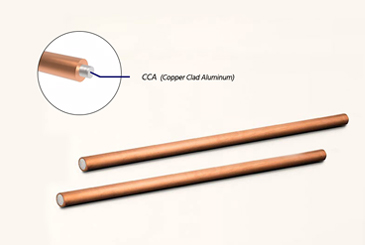The emergence of aluminum guitars has brought a whole new choice to guitar playing. Compared to traditional wooden guitars, aluminum guitars have many unique advantages.
They not only have a bright and melodious tone but also possess the characteristics of being lightweight and durable, making them popular among music enthusiasts and professional players.
The components of an aluminum guitar
Compared to traditional wooden guitars, aluminum guitars have many unique advantages, and these advantages are also reflected in the careful design and production of their components.
Aluminum Neck
Aluminum necks not only provide support for guitars but also influence the feel and tone of the instrument. High-quality aluminum necks are typically made from high-strength aluminum alloys.
Contact us now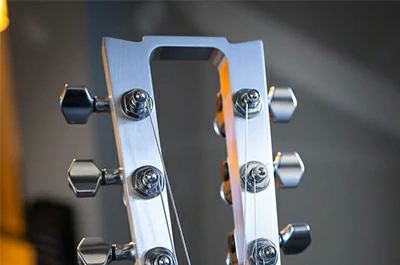
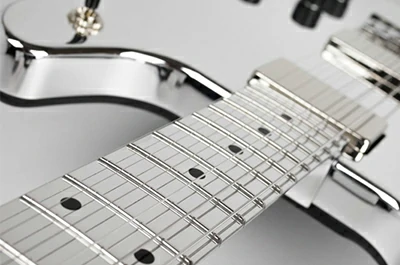
Aluminum Fretboard
The aluminum fingerboard is the part of the guitar that players directly interact with, so its material and craftsmanship have a significant impact on playing comfort and tone.
Contact us nowAluminum Body
The aluminum body is another core component of an aluminum guitar, influencing not only its appearance but also playing a decisive role in the guitar's resonance and tone.
Contact us now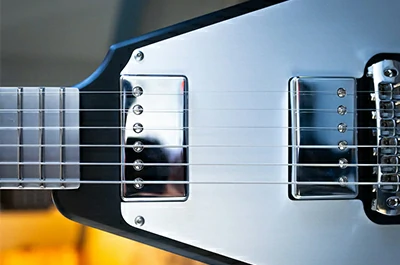
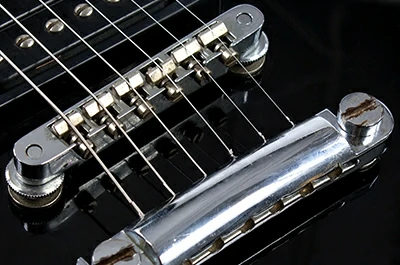
Aluminum Guitar Bridge
The aluminum guitar bridge is responsible for securing the strings and transmitting their vibrations, significantly impacting the guitar's intonation, tone, and playing feel.
Contact us nowAluminum guitar picks
Aluminum guitar picks have emerged as a new pick material in recent years. Compared to traditional picks, aluminum picks offer a bright and crisp tone, high durability, and a comfortable feel.
Contact us now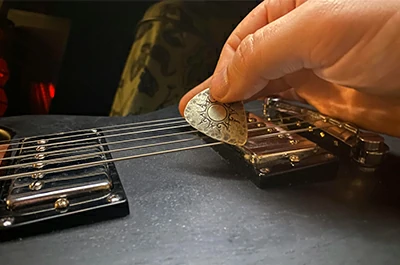
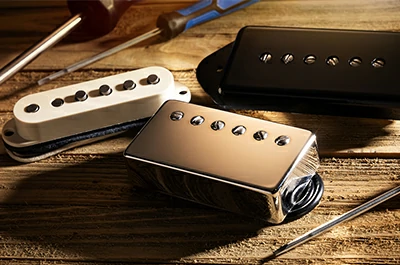
Guitar pickup
The pickup converts the vibrations of the strings into electrical signals and is a key component in shaping the guitar's tone. Common types of pickups used in aluminum guitars include single-coil, humbucker, and P-90.
Contact us nowThe body shape options of aluminum guitars
Different body shapes and various sizes impact both the sound and playability.
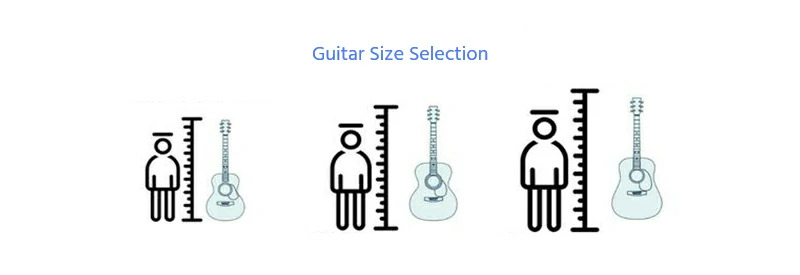
| Body shape | JUMBO Body shape | D Body shape | GA Body shape | OM Body shape | GS mini Body shape |
| Size | 42 in | 41 in | 41 in | 40 in | 36 in |
| Overall length | 107 cm | 104 cm | 104 cm | 101 cm | 92 cm |
| Features | Larger in size, offering balanced and resonant sound. | A popular guitar body shape with rich bass and strong projection, suitable for both strumming and fingerpicking. | Compared to the D body shape, the GA body shape emphasizes higher frequencies, making it particularly favored by fingerstyle players. | The pronounced midrange offers a warm and clear tone, making it a favorite among professional players for recording and live solos. | The smaller size is suitable for children to play and for easy portability. |
Advantages of aluminum guitars
- Bright and clear tone, suitable for various music styles.
- Lightweight and durable, reducing the burden of playing.
- Stable and long-lasting, resistant to deformation or damage.
- Good resonance, long sustain, rich tone.
- Structural features that meet different playing needs.
- Stylish appearance and easy maintenance.
Manufacturing process of aluminum guitars
- Selection of suitable aluminum alloy materials, followed by cutting and processing.
- Utilization of CNC machining, stamping, welding, and other techniques to produce components like the body, neck, and bridge.
- Surface treatments such as anodizing, painting, and brushing for components like the body and neck.
- Assembly of all components and fine-tuning/calibration.
Some guitar manufacturers have started using 3D printing technology to produce aluminum guitar parts. This can make guitar design more flexible and reduce production costs.
Materials used in aluminum guitar production
6061 Aluminum Alloy: Good strength, toughness, and corrosion resistance, suitable for making guitar bodies and necks.
6082 Aluminum Alloy: Excellent strength and toughness, ideal for making guitar necks and bodies.
2024 Aluminum Alloy: High strength but lower toughness, suitable for making components that need to withstand high pressure, such as bridges.
7075 Aluminum Alloy: High strength and toughness, but heavier, suitable for making components requiring high strength and toughness, such as necks.
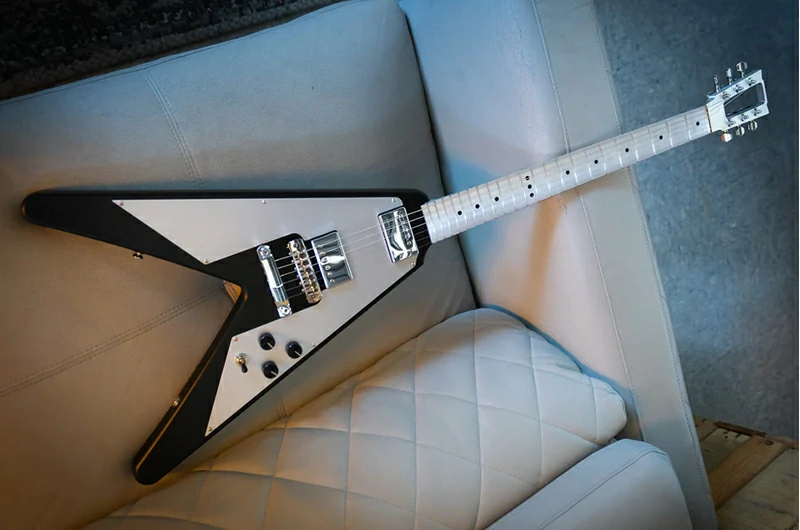
Which guitar is more suitable for you?
It depends on your personal preferences and needs. If you're looking for a guitar with warm, round tones, a wooden guitar might be a good choice.
If you're seeking a guitar with bright, clear tones and want a lightweight, durable instrument, then an aluminum guitar could be a good fit.
Aluminum guitars require special maintenance and care?
Not at all! The maintenance cost for aluminum necks is relatively low. Fingerprints can be removed using a simple cloth and rubbing alcohol.
Some famous guitarists who play aluminum guitars

Tosin Abasi

Paul Waggoner

Devin Townsend

Tom Morello

John Mayer

Vicente Amigo






